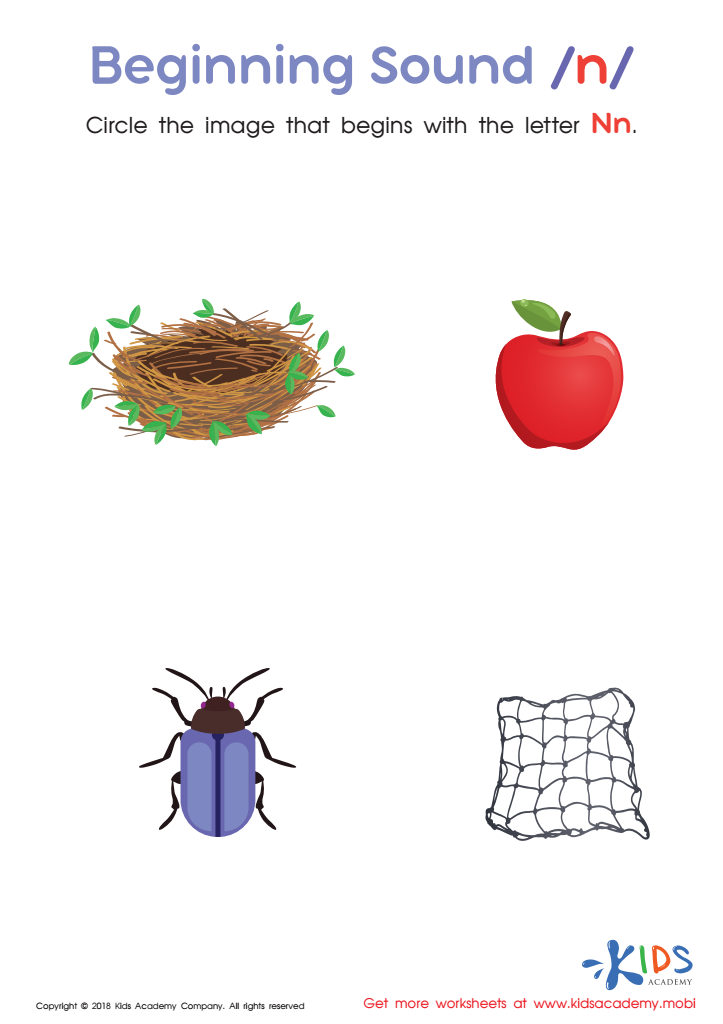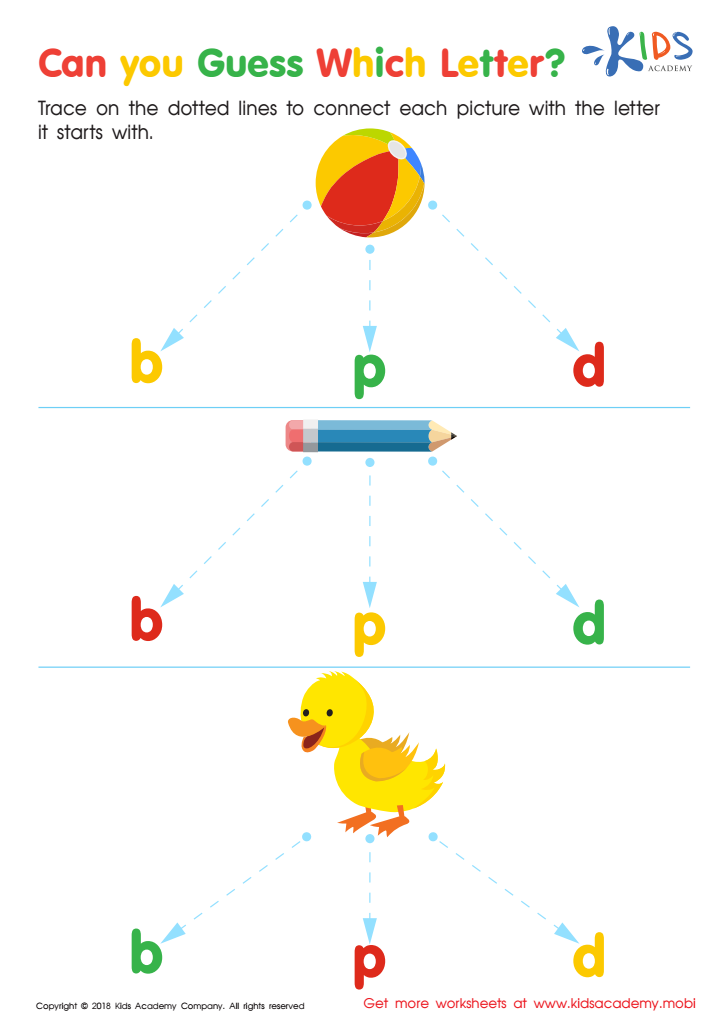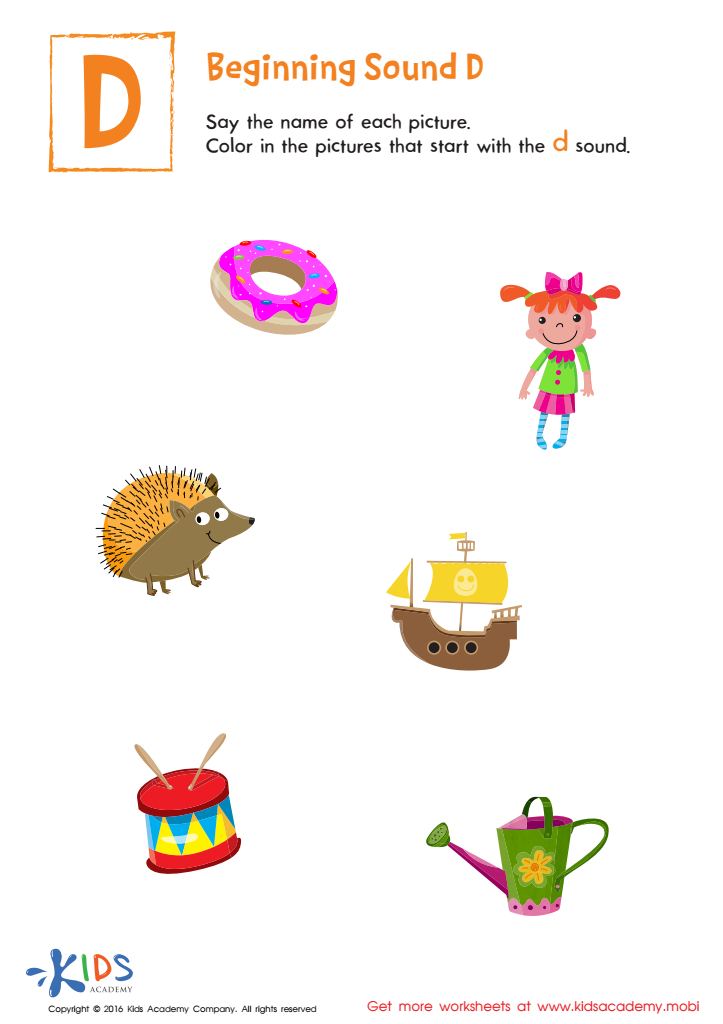Reading readiness Normal Beginning Sounds Worksheets for Ages 3-7
3 filtered results
-
From - To
Discover our "Reading Readiness Normal Beginning Sounds Worksheets for Ages 3-7" designed to sharpen early literacy skills. These fun and engaging worksheets help young learners practice identifying initial sounds, a key step in phonetic development. Perfect for preschoolers and early elementary students, each worksheet features vibrant images and simple exercises to boost confidence and make learning enjoyable. Our extensive collection supports parents and educators in building a solid foundation for reading and language mastery. Equip your child with the skills needed to excel in reading with our expertly crafted beginning sounds worksheets.


Beginning Sound «n» Worksheet


Can you Guess Which Letter? Worksheet


Beginning Sound D Worksheet
Reading readiness and understanding normal beginning sounds for children ages 3-7 are crucial for several reasons. During these formative years, children’s brains are exceptionally receptive to language acquisition. Developing a strong foundation in phonemic awareness—the ability to hear, identify, and manipulate sounds—plays a critical role in their future reading success.
Firstly, recognizing beginning sounds helps children understand that words are made up of distinct, individual sounds. This skill underpins their ability to decode words while reading, supporting literacy development. Phonemic awareness is a key predictor of long-term academic achievement. When children master this, they typically read more fluently and with greater comprehension.
Early literacy support also fosters a positive attitude towards reading. Engaging children through fun, sound-based activities can spark their natural curiosity and love for books, setting the stage for lifelong learning. Additionally, strong literacy skills contribute to better vocabulary, improved communication, and higher overall academic performance, affecting areas beyond just reading.
Parents and teachers who emphasize reading readiness and normal beginning sounds give children a significant advantage, addressing potential reading challenges early on. By creating a supportive and enriched learning environment, they help children transition more smoothly into formal education and cultivate essential skills that will benefit them throughout their academic journeys and beyond.
 Assign to My Students
Assign to My Students














